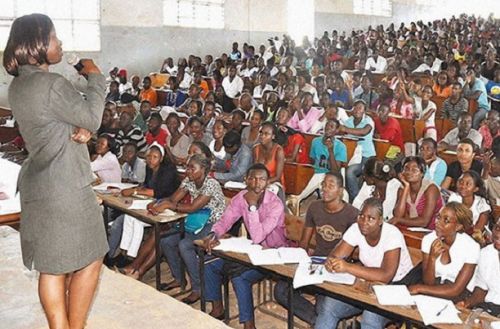Cameroon is ranked amongst the most literate countries in Africa. But for a country with such high level of literacy, unemployment is still a major challenge faced by the youth. Every year, thousands of young people graduate from public and private universities, professional schools and training institutes. However, getting a job seems to be a far fetched dream. The relationship between education, development and growth is quite obvious. When one is lacking, the other has to be checked. In our current scenario, education in Cameroon does not quite fulfil the employment expectations of the people. What could be the problem?
For years, stakeholders in the education system of Cameroon have always complained of the lack of direction in the school curriculum and the prioritization of general education over technical education. Cameroon’s Minister of Employment and Vocational Training, Issa Tchiroma Bakary, has blamed the unemployment rate in the country on the current system of higher education.
Speaking at an event to launch a digital tool that links employers and job seekers held on January 31, 2022 in the country’s economic capital Douala, Tchiroma blamed parents and guardians for the wrong choices their children make and said these choices do not meet the demands of the labour market. “You send them to study history, geography, modern letters, Greek or German languages, and so on. They will come out with those degrees, but they will never have jobs. Never!” he said.

Many pundits hold that the system of tertiary education in the central African nation, which is tilted towards general education rather than specialised technical and vocational training, is the cause of the increasing unemployment. The unemployment rate in Cameroon has increased to about 3.62% in the period 2012-2021, according to Trading Economics’ global macro models and analysts’ expectations.
According to economist Dr Chiabi Protus, minister Tchiroma’s outburst should be saluted, because there is a definite gap between university education and job market needs in the country. A private university lecturer remarked that this all boils down to skills and experience because enterprises do not hire employees for the sake of hiring but because of the value the employee will bring. Unfortunately, some faculties like those mentioned by the minister are not giving any skills to the learners.
Protus underscored the need for policymakers to reform the system. “If we truly want to reduce the unemployment rate, then our school programmes need to be restructured so that, upon completion of their studies, graduates should be able to add value to an establishment.”
Our educational system is not geared towards skill acquisition, as it is more theoretical than practical. There’s still much to be done to ensure our educational system is beneficial to our economy.
George Babila Nfon, Entrepreneur
George Babila Nfon, Chief Executive Officer of Afoliba Group explained that Cameroon’s educational system does not work for the youths because it has failed to embed in them skills needed in the contemporary job market. The holder of a Master’s in Business Administration said Cameroonians are very creative, but they have failed to excel because the educational policy does not encourage innovation as it emphasises theory and not skill. “Our educational system is not geared towards skill acquisition, as it is theoretical than practical. We need to return to the drawing board as academicians and industry practitioners need to be brought on board to frame an educational system that is geared towards skill acquisition” George Babila said. According to him, unemployment persists not because there are no jobs, but because the educated workforce is not employable due to their lack of contemporary job skills. “Our educational system is not working for us. We have a lot of graduates in accountancy, engineering who are unemployable. There’s still much to be done to ensure our educational system is beneficial to our economy” he added.
To ensure that Cameroons education benefits its people more, certain decisions have to be implemented such as: promoting vocational and technical training, encourage practical and professional training, sensitize parents on importance of technical education, encourage Tech and Communication skills acquisition, crash and certification courses in addition to formal education, and most importantly, education policy reform by the government.




